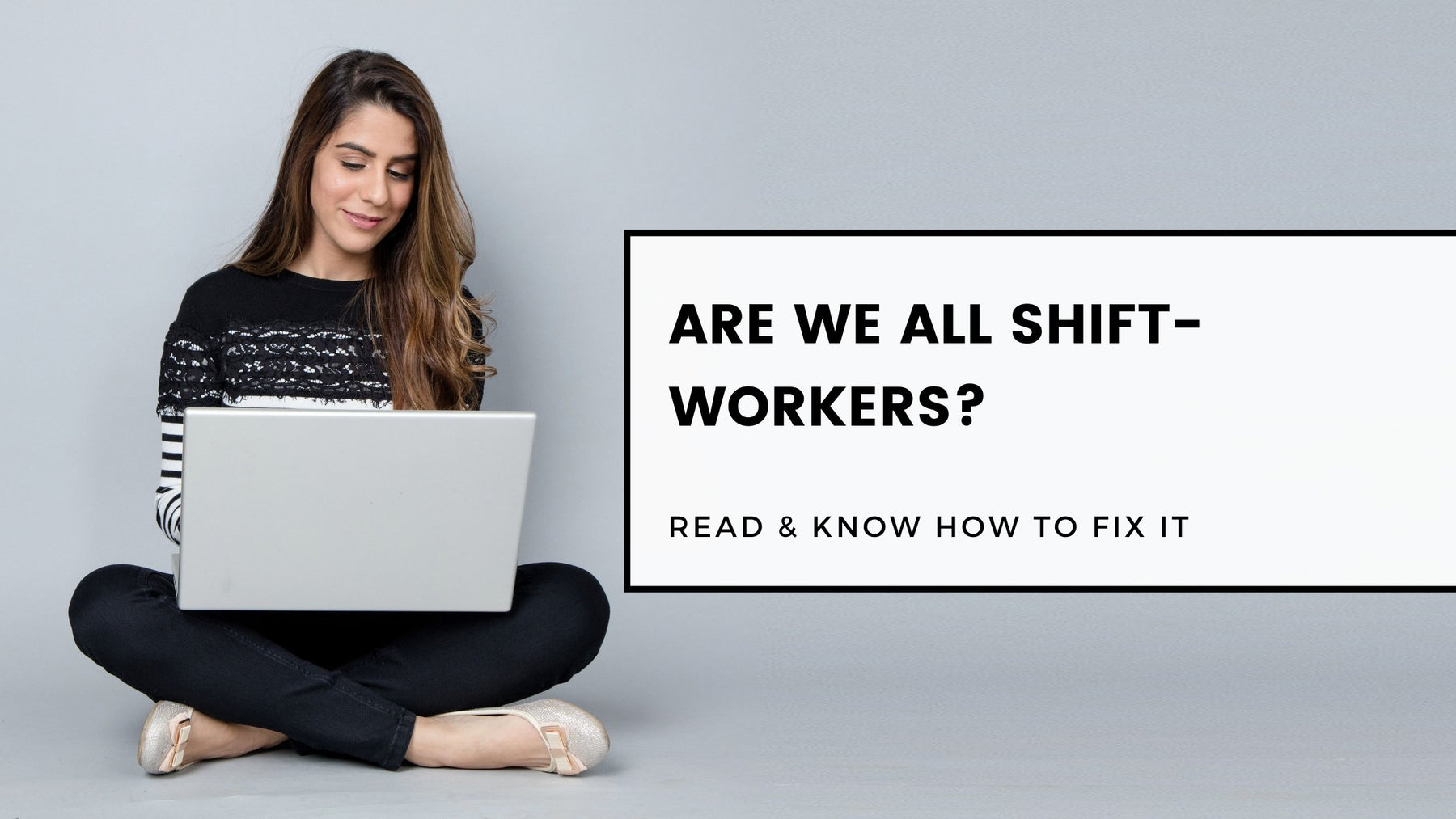
Are we all shift- workers?
Are you working the grave shift even when your job doesn't demand you to?
‘Are we all shift- workers?’
Every now and then I have clients whose work demands them to stay up while the rest of us sleep. These could be of any profession from doctors to IT guys.
The technical European definition of a shift worker is a person who stay awake for more than three hours between 10.00 pm and 5.00 am for more than 50 days in a year.
If not daily, most of us struggle with something called ‘social jet lag’, ie: sleeping at least two hours late and waking up late over the weekends.

If you do work the graveyard shift, read this to know more:
Does this have any effect on our health?
Well as of 2017, the World Health Organizations International Agency for Research on Cancer classified shift- work as a potential carcinogen. Meaning, people who are shift- workers are more prone to cancers!
It is not just cancer, but other lifestyle diseases such as allergies, arthritis, migraines, heartburn, weight gain, and depression are also associated with an improper circadian cycle.
How do we fix this?
Well if you are a doctor and your work demands you to be present, then you do not have much of a choice. But most of us have comfortable day- jobs that gets dragged into late hours of the night due to bad time management.
Here are a few ways to help you sleep better though:
1) Change the lighting in your room: White/ blue light reduces the production of melatonin (sleep hormone) in the body, keeping you up for hours before you finally fall asleep.
This field of changing home lighting in different parts of the house as per the circadian cycle has so much untapped business potential!
2) If you must use technology till you are ready to finally go to bed, make sure to wear blue light blocking glasses. I use them myself post 6 pm and insist my clients do the same too.
3) Invest a few minutes of non-doing right before bedtime, this will help reduce the activity of the amygdala (fight or flight response) and help you fall alseep faster.
4) Explore TRE: Time Restricted eating (fasting for 10- 12 hours per day) helps fix a bad circadian cycle. Say no to food a few hours before you go to bed and avoid eating food for the first hour after you wake up.
5) Dedicate the first half of Sunday to watch movies and binge on Netflix. Slipping off your circadian cycle over the weekend does no good to improve your health.
If you are struggling from lifestyle-borne diseases such as cholesterol and diabetes, but feel you are doing everything right, it’s probably because of a bad circadian cycle.
Hope this helps!
Loving you always,
Roshni Sanghvi.
Let's Just Talk. No Obligations.
I do free consultations every Tuesday's and Thursday's. Either way you will get some actionable tips to reach your fitness goals faster.


Leave a comment